Pope Francis’s new encyclical on the environment (Laudato Sii) warns of the coming environmental catastrophe (“unprecedented destruction of ecosystems, with serious consequences for all of us”). It’s the latest entry in a long literary tradition of environmental doomsday warnings.
In contrast, Matt Ridley, bestselling author of Genome, The Agile Gene, and The Rational Optimist, who also received the 2012 Julian Simon Memorial Award from the Competitive Enterprise Institute, says this outlook has proven wrong time again. This is the full text of his acceptance speech. Video is embedded below.
It is now 32 years, nearly a third of a century, since Julian Simon nailed his theses to the door of the eco-pessimist church by publishing his famous article in Science magazine: “Resources, Population, Environment: An Oversupply of False Bad News.”
It is also 40 years since The Limits to Growth and 50 years since Silent Spring, plenty long enough to reflect on whether the world has conformed to Malthusian pessimism or Simonian optimism.
Before I go on, I want to remind you just how viciously Simon was attacked for saying that he thought the bad news was being exaggerated and the good news downplayed.
Verbally at least Simon’s treatment was every bit as rough as Martin Luther’s. Simon was called an imbecile, a moron, silly, ignorant, a flat-earther, a member of the far right, a Marxist.
“Could the editors have found someone to review Simon’s manuscript who had to take off his shoes to count to 20?” said Paul Ehrlich.
Erhlich together with John Holdren then launched a blistering critique, accusing Simon of lying about electricity prices having fallen. It turned out they were basing their criticism on a typo in a table, as Simon discovered by calling the table’s author. To which Ehrlich replied: “what scientist would phone the author of a standard source to make sure there were no typos in a series of numbers?”
Answer: one who likes to get his facts right.
Yet for all the invective, his critics have never laid a glove on Julian Simon then or later. I cannot think of a single significant fact, data point or even prediction where he was eventually proved badly wrong. There may be a few trivia that went wrong, but the big things are all right. Read that 1980 article again today and you will see what I mean.
I want to draw a few lessons from Julian Simon’s battle with the Malthusian minotaur, and from my own foolhardy decision to follow in his footsteps – and those of Bjorn Lomborg, Ron Bailey, Indur Goklany, Ian Murray, Myron Ebell and others – into the labyrinth a couple of decades later.
Consider the words of the publisher’s summary of The Limits to Growth: “Will this be the world that your grandchildren will thank you for? A world where industrial production has sunk to zero. Where population has suffered a catastrophic decline. Where the air, sea, and land are polluted beyond redemption. Where civilization is a distant memory. This is the world that the computer forecasts.”
Again and again Simon was right and his critics were wrong.
Would it not be nice if just one of those people who called him names piped up and admitted it? We optimists have won every intellectual argument and yet we have made no difference at all. My daughter’s textbooks trot out the same old Malthusian dirge as mine did.
What makes it so hard to get the message across?
I think it boils down to five adjectives: ahistorical, finite, static, vested and complacent. The eco-pessimist view ignores history, misunderstands finiteness, thinks statically, has a vested interest in doom and is complacent about innovation.
People have very short memories. They are not just ignoring, but unaware of, the poor track record of eco-pessimists. For me, the fact that each of the scares I mentioned above was taken very seriously at the time, attracting the solemn endorsement of the great and the good, should prompt real skepticism about global warming claims today.
That’s what motivated me to start asking to see the actual evidence about climate change. When I did so I could not find one piece of data – as opposed to a model – that shows either unprecedented change or change is that is anywhere close to causing real harm.
Yet when I made this point to a climate scientist recently, he promptly and cheerily said that “the fact that people have been wrong before does not make them wrong this time,” as if this somehow settled the matter for good.
Second, it is enormously hard for people to grasp Simon’s argument that “Incredible as it may seem at first, the term ‘finite’ is not only inappropriate but downright misleading in the context of natural resources.”
He went on: “Because we find new lodes, invent better production methods and discover new substitutes, the ultimate constraint upon our capacity to enjoy unlimited raw materials at acceptable prices is knowledge.” This is a profoundly counterintuitive point.
Yet was there ever a better demonstration of this truth than the shale gas revolution? Shale gas was always there; but what made it a resource, as opposed to not a resource, was knowledge – the practical know-how developed by George Mitchell in Texas. This has transformed the energy picture of the world.
Besides, as I have noted elsewhere, it’s the renewable – infinite – resources that have a habit of running out: whales, white pine forests, buffalo. It’s a startling fact, but no non-renewable resource has yet come close to exhaustion, whereas lots of renewable ones have.
And by the way, have you noticed something about fossil fuels – we are the only creatures that use them. What this means is that when you use oil, coal or gas, you are not competing with other species. When you use timber, or crops or tide, or hydro or even wind, you are.
There is absolutely no doubt that the world’s policy of encouraging the use of bio-energy, whether in the form of timber or ethanol, is bad for wildlife – it competes with wildlife for land, or wood or food.
Imagine a world in which we relied on crops and wood for all our energy and then along comes somebody and says here’s this stuff underground that we can use instead, so we don’t have to steal the biosphere’s lunch.
Imagine no more. That’s precisely what did happen in the industrial revolution.
Third, the Malthusian view is fundamentally static. Julian Simon’s view is fundamentally dynamic. Again and again when I argue with greens I find that they simply do not grasp the reflexive nature of the world, the way in which prices cause the substitution of resources or the dynamic properties of ecosystems – the word equilibrium has no place in ecology.
Take malaria. The eco-pessimists insisted until recently that malaria must get worse in a warming 21st century world. But, as Paul Reiter kept telling them to no avail, this is nonsense. Malaria disappeared from North America, Russia and Europe and retreated dramatically in South America, Asia and Africa in the twentieth century even as the world warmed.
That’s not because the world got less congenial to mosquitoes. It’s because we moved indoors and drained the swamps and used DDT and malaria medications and so on. Human beings are a moving target. They adapt.
But, my fourth point, another reason Simon’s argument fell on stony ground is that so many people had and have a vested interest in doom. Though they hate to admit it, the environmental movement and the scientific community are vigorous, healthy, competitive, cut-throat, free markets in which corporate leviathans compete for donations, grants, subsidies and publicity. The best way of getting all three is to sound the alarm. If it bleeds it leads. Good news is no news.
Imagine how much money you would get if you put out an advert saying: “we now think climate change will be mild and slow, none the less please donate”. The sums concerned are truly staggering. Greenpeace and WWF, the General Motors and Exxon of the green movement, between them raise and spend a billion dollars a year globally. WWF spends $68m alone on educational propaganda. Frankly, Julian, Bjorn, Ron, Indur, Ian, Myron and I are spitting in the wind.
Yet, fifth, ironically, a further problem is complacency. The eco-pessimists are the Panglossians these days, for it is they who think the world will be fine without developing new technologies. Let’s not adopt GM food – let’s stick with pesticides.
Was there ever a more complacent doctrine than the precautionary principle: don’t try anything new until you are sure it is safe? As if the world were perfect. It is we eco-optimists, ironically, who are acutely aware of how miserable this world still is and how much better we could make it – indeed how precariously dependent we are on still inventing ever more new technologies.
I had a good example of this recently debating a climate alarmist. He insisted that the risk from increasing carbon dioxide was acute and that therefore we needed to drastically cut our emissions by 90 percent or so. In vain did I try to point out that drastically cutting emissions by 90% might do more harm to the poor and the rain forest than anything the emissions themselves might do. That we are taking chemotherapy for a cold, putting a tourniquet round our neck to stop a nosebleed.
My old employer, the Economist, is fond of a version of Pascal’s wager – namely that however small the risk of catastrophic climate change, the impact could be so huge that almost any cost is worth bearing to avert it. I have been trying to persuade them that the very same logic applies to emissions reduction.
However small is the risk that emissions reduction will lead to planetary devastation, almost any price is worth paying to prevent that, including the tiny risk that carbon emissions will destabilize the climate. Just look at Haiti to understand that getting rid of fossil fuels is a huge environmental risk.
That’s what I mean by complacency: complacently assuming that we can decarbonize the economy without severe ecological harm, complacently assuming that we can shut down world trade without starving the poor, that we can grow organic crops for seven billion people without destroying the rain forest.
Having paid homage to Julian Simon’s ideas, let me end by disagreeing with him on one thing. At least I think I am disagreeing with him, but I may be wrong.
He made the argument, which was extraordinary and repulsive to me when I first heard it as a young and orthodox eco-pessimist, that the more people in the world, the more invention. That people were brains as well as mouths, solutions as well as problems. Or as somebody once put it: why is the birth of a baby a cause for concern, while the birth of a calf is a cause for hope?
Now there is a version of this argument that – for some peculiar reason – is very popular among academics, namely that the more people there are, the greater the chance that one of them will be a genius, a scientific or technological Messiah.
Occasionally, Julian Simon sounds like he is in this camp. And if he were here today, — and by Zeus, I wish he were – I would try to persuade him that this is not the point, that what counts is not how many people there are but how well they are communicating. I would tell him about the new evidence from Paleolithic Tasmania, from Mesolithic Europe from the Neolithic Pacific, and from the internet today, that it’s trade and exchange that breeds innovation, through the meeting and mating of ideas.
That the lonely inspired genius is a myth, promulgated by Nobel prizes and the patent system. This means that stupid people are just as important as clever ones; that the collective intelligence that gives us incredible improvements in living standards depends on people’s ideas meeting and mating, more than on how many people there are. That’s why a little country like Athens or Genoa or Holland can suddenly lead the world. That’s why mobile telephony and the internet has no inventor, not even Al Gore.
Not surprisingly, academics don’t like this argument. They just can’t get their pointy heads around the idea that ordinary people drive innovation just by exchanging and specializing. I am sure Julian Simon got it, but I feel he was still flirting with the outlier theory instead.
The great human adventure has barely begun. The greenest thing we can do is innovate. The most sustainable thing we can do is change. The only limit is knowledge. Thank you Julian Simon for these insights.
2012 Julian L. Simon Memorial Award Dinner from CEI Video on Vimeo.
Anything Peaceful
Anything Peaceful is FEE’s new online ideas marketplace, hosting original and aggregate content from across the Web.


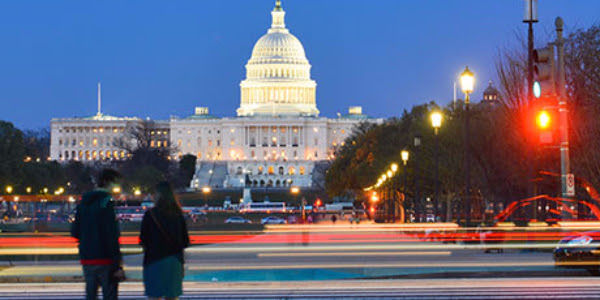








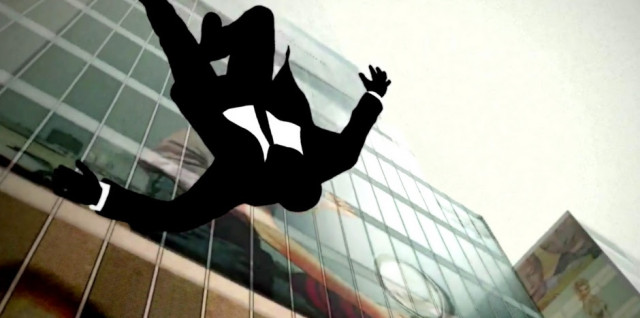


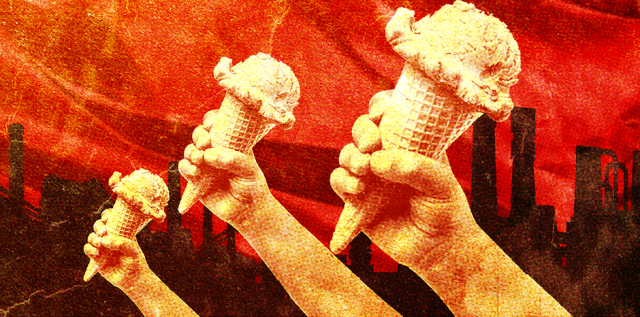

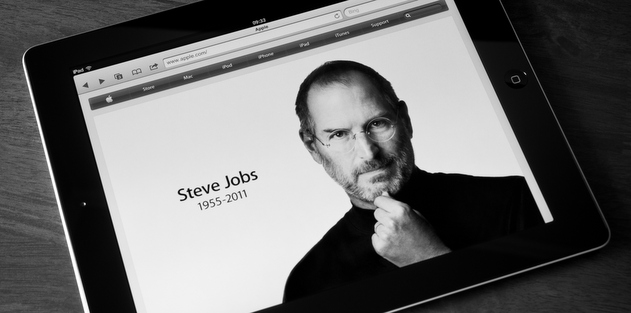

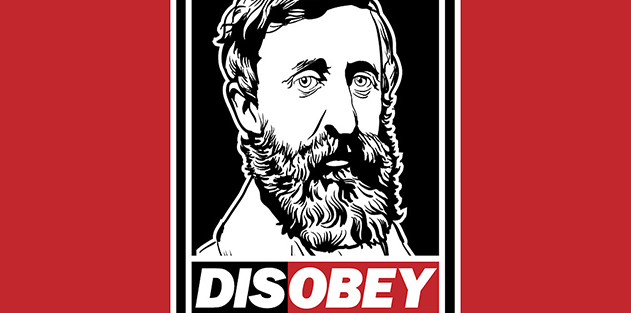





 The explicit 2 percent ACA surcharge at Buffalo Wild Wings may or may not have been intended as permanent. The restaurant chain’s executives have already cancelled the policy after customers reacted negatively. But there is a lesson to be learned from the surcharge. Government programs have the superficial appearance of being free, but they never are.
The explicit 2 percent ACA surcharge at Buffalo Wild Wings may or may not have been intended as permanent. The restaurant chain’s executives have already cancelled the policy after customers reacted negatively. But there is a lesson to be learned from the surcharge. Government programs have the superficial appearance of being free, but they never are.



